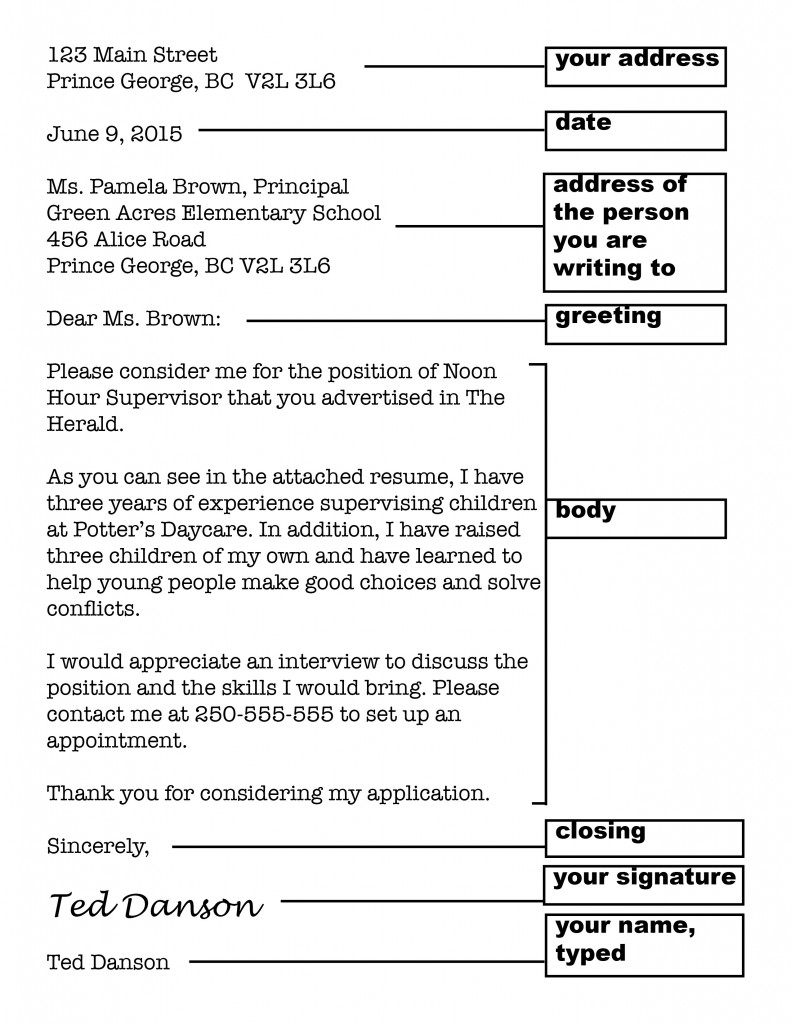Main Body
Writing the Script
Learning Goals
In this chapter, you will learn to:
- Use the root “port” and the affixes -er, -or, -ly, im-, and ex-
- Discuss and respond to the digital story Memory
- Analyze characters
- Make inferences and draw conclusions
- Use complex sentences
- Distinguish between conversational and formal language
- Write a cover letter to apply for a job

Get Ready to Read
- Describe a memorable scene from a favourite movie, TV show, book, or video game. Where does the scene take place? Who is in the scene? What happens?
- Can you think of a single event in your life that changed you? What was the event? How did you change?
Vocabulary
Scan Writing the Script to find a bold word for each of the following.
1. An opinion about what someone should do
2. Easy to see or notice
3. Forcing a person to leave a country
4. Having a strong effect on someone or something
5. Involving physical or emotional violence
6. Parts of a story where action takes place
7. Something that is done to make up for damage
8. The ability to think in a reasonable way
9. Did nothing to respond to something or someone
10. Too much of something
11. Very surprised or upset
Word Patterns
port is a root that means “carry.”
–er and –or are suffixes that mean “someone who.”
–ly is a suffix that means “in a certain way, time or place.”
im– is a prefix meaning “not” or “in.”
ex– is a prefix meaning “out of.”
Use the vocabulary words, roots, and affixes above to build a word for each definition below.
12. ___________________________: one who gives advice
13. ___________________________: in an obvious way
14. ___________________________: to carry something into a place
15. ___________________________: to carry something out of a place
Reading Strategy
Readers check their understanding of a text while they read. One strategy is to ask questions while you read, and then look for the answers. What do you wonder when you read the sentence below?
One of the most common pieces of advice given to storytellers is, “Show, don’t tell.”
You might wonder, “What does ‘Show, don’t tell’ mean?” Continue reading with this question in mind. Asking questions and looking for answers helps keep your brain thinking while you read.
Try this strategy as you read Writing the Script.
Check Your Understanding
1. What does “show, don’t tell” mean?
2. In your own words, describe the difference between a scene and a summary.
3. What kind of scene is usually important to include in a story?
4. How long should the script of a digital story be?
5. How long is a digital story?
6. Name two things a digital storyteller can rely on to tell a story, other than words.
7. What can happen if a storyteller gives the audience too much information?
8. What is the moment of change in Memory?
9. What detail tells you that Salomeja has changed?
10. How do you think Salomeja changed?
Writing Task
Think back to the moment of change in your story. What scenes are important to include to help someone understand how you changed? What details show that you changed?
Ask your instructor for a single cue card. Take 10 minutes to write a first draft of your story. Write whatever comes to mind. Don’t worry about grammar or spelling. Write using a conversational tone, as if you are talking to a dear friend. Don’t stop until your time runs out or you have filled up your cue card.

Take a break from your story. Complete the exercises on complex sentences and conversational versus formal language below. Before moving on to the next chapter, write a second draft of your script. Decide whether you need to include any more details or events to help the audience understand your story. Use conversational language.
Complex Sentences
Grammar Rule
You have learned that a compound sentence is made by joining two complete sentences. On the other hand, a complex sentence is made by joining one complete sentence with a sentence fragment. Together, they make one complete sentence.
You can put the two parts in whatever order you prefer. Below are two correct complex sentences:
- While peeling onions, you can chew gum to keep from crying.
or - You can chew gum to keep from crying while peeling onions.
Both sentences are made of a sentence fragment (“while peeling onions”) and a complete sentence (“You can chew gum to keep from crying.”).
If you put the fragment first, follow it with a comma. If you put the fragment last, do not use a comma.
Fragments often begin with one of these words:
| after | although | as | because | before |
| even if | even though | if | in order to | since |
| so that | unless | until | when | while |
Read each complex sentence below. Insert commas as needed. Remember that not all complex sentences need a comma.
Below are some tips for renting a house.
1. Before you sign an agreement make sure you know what your rent includes.
2. After you sign an agreement ask your landlord for a copy.
3. Rent is due on the first day of the month unless you have a different agreement with your landlord.
4. Pay your rent by cheque or money order if you can.
5. When you move in check the house with the landlord to make sure the place is clean and everything works.
6. Once you finish checking the house with the landlord get a copy of the inspection report.
7. If the landlord asks you to pay a damage deposit the amount cannot be greater than a half-month’s rent.
8. If a repair is needed tell your landlord right away.

Look at the sentence fragments below. Use your own ideas and the rules you have learned to turn them into complex sentences.
9. When I first started studying English
10. Before I came to school today
11. While our class is on a break
12. If I work hard
13. After I get home from school
Look at the complete sentences below. Use the word in brackets and your own ideas to turn them into complex sentences.
14. I was going to do my homework. (after)
15. I put on lots of sunscreen. (before)
16. Swimming pools can be a lot of fun. (although)
17. The library is a good place to study. (unless)
18. Tim decided to go to a yoga class. (in order to)
Conversational versus Formal Language
Grammar Rule
We write for many different audiences. The language we use depends on our audience. Imagine you are writing a note to a close friend. You would probably write in a conversational style that is similar to how you speak.
Hey Laurel,
How’s it going? I’m coming to Toronto this summer. Wanna meet up? It’d be great to see you!
Hugs,
Shantel
Then imagine writing a letter to apply for a job. You would probably write in a much more formal style. You would follow standard grammar rules. You would spell words correctly. You would avoid using contractions (like how’s).
Dear Sir or Madam,
I am writing to apply for the position of server at Seabreeze Restaurant. My resume is attached. I look forward to hearing from you.
Sincerely,
Shantel Ivits
Generally, instructors expect students’ paragraph writing to be more formal than conversational. Personal writing (such as journal writing) and creative writing (such as stories) are often more conversational than formal.
Are the phrases and sentences below conversational or formal?
1. Hi Ben
2. To whom it may concern
3. What’s up?
4. Talk to you soon.
5. I look forward to hearing from you.
6. Take care
7. Respectfully yours
8. Yup, I agree.
9. Indeed
10. May I please borrow your eraser?
11. Can I use your eraser?
12. This totally sucks.
13. I am not fond of this.
14. That’s so awesome!
15. I am very pleased by this news.
Writing Task
A well-written cover letter is an important part of a job application. A cover letter should follow a standard business letter format. It should be written using formal language.
1. Think: Think of a job you would like to apply for. Make a web to brainstorm reasons you are qualified for the job. Ask your instructor for a Make a Web worksheet, or open and print one from the link. You will also find a printable version in Appendix 1.
2. Organize: Look at the example below to see the standard format for a business letter. Think about what information you will include in the different parts of your letter.
3. Write: Write a first draft of your cover letter. Don’t worry too much about spelling and grammar. Just get your ideas down in a way that makes sense. At this point, you may want to put your draft aside so you can look at it with fresh eyes later.
4. Edit: Use a different colour to make edits to your writing. Check to see how it sounds when you read it out loud. Is the meaning clear? Are there any details that are missing or off topic? Should you use different sentence types to make it flow more smoothly? Are there any words that you want to change to make your writing more alive? (Use a thesaurus to find more interesting vocabulary words.) Are all your sentences complete? Do you need to check the spelling of any words in a dictionary?
5. Rewrite: Write a final copy of your cover letter that includes all your edits. You may wish to type it on a computer. Finally, hand in your cover letter to your instructor.
Answer Key
| Vocabulary | |
| QUESTION | ANSWER |
| 1 | advice |
| 2 | obvious |
| 3 | deporting |
| 4 | powerfully |
| 5 | abusive |
| 6 | scenes |
| 7 | compensation |
| 8 | common sense |
| 9 | ignored |
| 10 | overloaded |
| 11 | stunned |
| 12 | advisor |
| 13 | obviously |
| 14 | import |
| 15 | export |
| Check Your Understanding | |
| QUESTION | ANSWER |
| 1 | “Show, don’t tell” means to allow the audience to understand the story through scenes, rather than through a summary of events. |
| 2 | A scene and a summary are different because a scene paints a picture with actions, conversation, and emotion. A summary tells the basic facts of what happened. |
| 3 | It is usually important to include the moment when a character changes in a story. |
| 4 | The script of a digital story should be 250 to 375 words. |
| 5 | A digital story is three to five minutes long. |
| 6 | A digital storyteller can rely on the audience’s common sense and images to help tell the story. |
| 7 | If a storyteller gives the audience too much information, the audience may get bored. |
| 8 | The moment of change in Memory is when Salomeja holds a second funeral for her father, using the compensation money she has received. |
| 9 | The fact that Salomeja did not cry during her father’s funeral, but did cry during his second funeral, tells the audience she has changed. |
| 10 | Answers may vary. The second funeral changed Salomeja because she was no longer troubled by the feelings of receiving the compensation money for her father’s suffering. She was able to free herself of some of her anger and sadness about what had happened to her father, because she used the money to honour him in a lasting way. This probably helped Salomeja to accept her father’s death. |
| Complex Sentences | |
| QUESTION | ANSWER |
| 1 | Before you sign an agreement, make sure you know what your rent includes. |
| 2 | After you sign an agreement, ask your landlord for a copy. |
| 3 | Rent is due on the first day of the month unless you have a different agreement with your landlord. |
| 4 | Pay your rent by cheque or money order if you can. |
| 5 | When you move in, check the house with the landlord to make sure the place is clean and everything works. |
| 6 | Once you finish checking the house with the landlord, get a copy of the inspection report. |
| 7 | If the landlord asks you to pay a damage deposit, the amount cannot be greater than a half-month’s rent. |
| 8 | If a repair is needed, tell your landlord right away. |
| Conversational Versus Formal English | |
| QUESTION | ANSWER |
| 1 | conversational |
| 2 | formal |
| 3 | conversational |
| 4 | conversational |
| 5 | formal |
| 6 | conversational |
| 7 | formal |
| 8 | conversational |
| 9 | formal |
| 10 | formal |
| 11 | conversational |
| 12 | conversational |
| 13 | formal |
| 14 | conversational |
| 15 | formal |
Attributions
Book
Image by markusspiske is in the public domain.
Cue card
Image by OpenClipartVectors is in the public domain.
Apartment for rent
Image by cincy Project is used under a CC BY 2.0 license.


